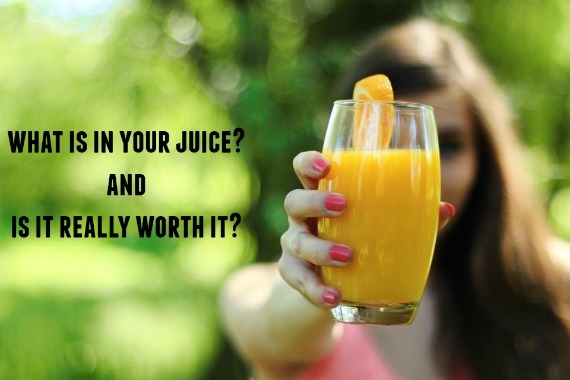
Growing up as a child, I loved drinking fresh fruit juices. Until my son was born, I didn't really pay heed to why juicing wasn't the in thing anymore. It's only after his pediatrician asked me to keep him away from juices. At that point I asked her if I could give him homemade fresh fruit juices. She told me that obviously homemade juice is better than the store bought juices but rather give him a whole fruit. At that point my toddler was an obedient little munchkin who would listen to me and did exactly what I asked him to do. Obviously I knew that this phase won't last for too long. From the terrible two's to the Terrific three's....As he is growing the number of birthday parties we are attending is also going up. My heart aches every time he is served with packaged juice boxes at birthday parties. Even if it is the best or the most honest brand of juice or even if the package says 'not from concentrate' or '100 % juice'. Although these labels might be correct but they are very misleading. Let's take a step back and ask ourselves the following questions.
1. How can it all taste the same? - Freshly squeezed juices don't always taste the same. Depending on the batch of the fruits, sometimes they can be sweet, sometimes tangy, sometimes not that great. Also consider the fact that each brand may also have a particular taste which is unique to theirs, irrespective of the batch or package you consume.
2. How can it not go bad? - Freshly squeezed juice doesn't have a shelf life of up to a year. Most of the times it won't even last a couple days, it goes bad, it starts fermenting. I recently did some researched on this topic and this is what I found
Once the oranges are squeezed they are stored in large tanks. The juice is then deareated (remove oxygen), so it could last upto a year without going bad. This process takes away the flavor from the juice. So to get the flavors back and to make it taste fresh, juice companies hire flavor and fragrance companies (same as Dior & Calvin Klein) to add flavor packets. The flavor packets are derived from orange essence and oil and are not listed as an ingredients due to the complex labeling laws.
According to food policy scholar Alissa Hamilton the author of Squeezed: What you don't know about orange juice (source)
The technology of choice at the moment is aseptic storage, which involves stripping the juice of oxygen, a process known as "deaeration," so it doesn't oxidize in the million gallon tanks in which it can be kept for upwards of a year.
Now that we know, it's not the real fruit juice out there, ever wondered why does it cost more? Simply because the process of storing fully pasteurized juice is more expensive than storing the concentrate.
Here is a video of Alissa Hamilton in conversation CBC's Nancy Wilson.
Now let's take a step back and ask yourself, why are you drinking juice in the first place?
Fruit juices can be a good source of vitamins and other nutrients , however they are concentrated fructose that lack fiber. When we eat a fresh fruit, we consume the fiber and the other goodies, however when we juice the fruit we get rid of the fiber. Come to think of it, to make one glass of fruit juice we require more than 2-3 fruits at a time, do you think you would be able to consume more than 1-2 fruits at one time. Juices also instantly spike up sugar levels.
Infact Dr.Mercola doesn't recommend fruit juices (source).
Fruit juice is far worse than the whole fruit, especially if it is not freshly juiced and is stored in containers, as the methanol in the juice will dissociate from the pectin and actually increase your risk of multiple sclerosis.
So the next time you consider buying juice, think about what is it in your juice and it's real nutrient value. You are probably better off making your own juice at home the traditional way, like using a strainer rather than a juicing machine. At least the amount of fiber that you collect via a strainer is far more than the amount collected in a juicer. Or better still, add a lot of green vegetables with some fruits, instead of juicing only fruits. Best of all, consume a whole fresh fruit.
So is it fruit versus fruit juice? Leaving you with an info graphic, prepared by the physicians and registered dietitians at the renowned Pritikin Longevity Center in Miami, Florida. Click to zoom.